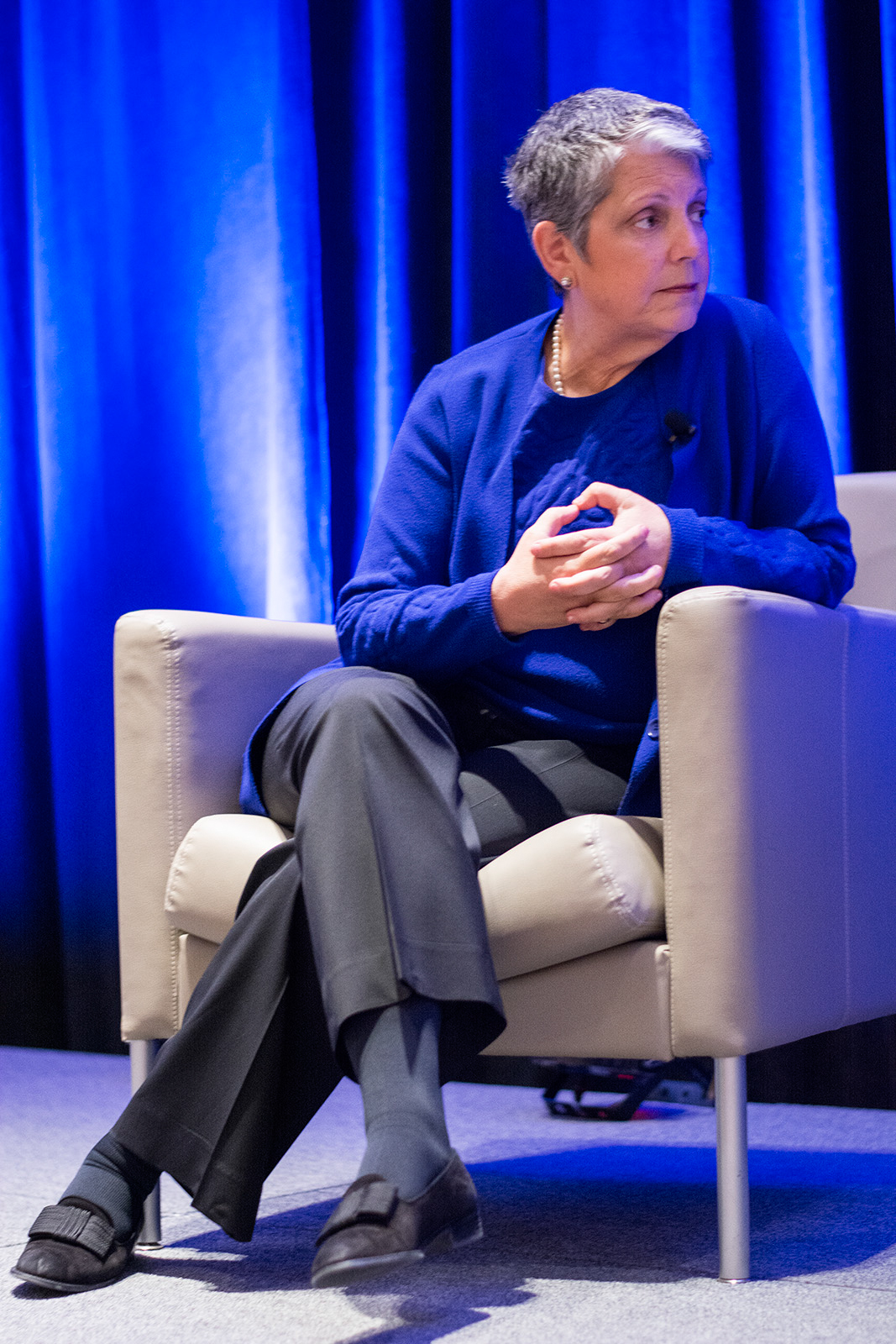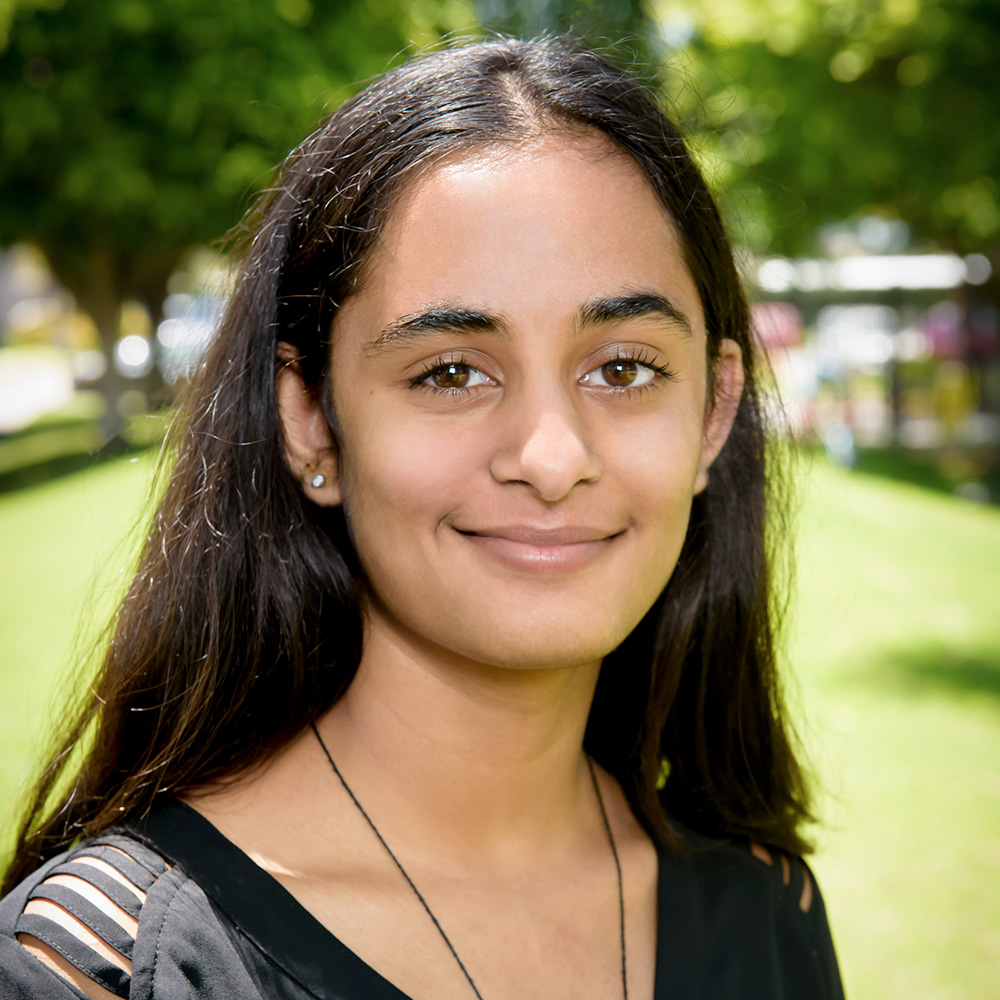Academic Senate members discuss hopes for next UC president to come from academia

University of California President Janet Napolitano announced at the September meeting of the Board of Regents that she would be stepping down from her position in August. Members of the UC Academic Senate said they hope the next UC president will come from academia. (MacKenzie Coffman/Daily Bruin senior staff)

By Saumya Gupta
Jan. 8, 2020 12:50 a.m.
This post was updated Jan 9 at 2:10 p.m.
As the search for the next University of California president continues, members of the UC Academic Senate said they want candidates to come from academia and have significant knowledge of the UC system.
Current UC President Janet Napolitano announced in September that she would be stepping down in August, leading to a nationwide search for her successor in the following academic year.
Michael Meranze, UCLA Academic Senate Chair, said he hopes the next UC president has a strong background in academia and understands the purposes and values of a research university.
Meranze said he specifically would like to see the next UC president work to improve diversity and access in the UC and fight for increased public funding.
“They (need to) recognize (the UC) is a public institution with responsibility of access and creation of knowledge and communication,” he said. “It’s not a business; it has traditions of governance.”
Kum-Kum Bhavnani, UC Academic Senate Chair and Academic Advisory Committee Chair, agreed that the leader of the UC should come from academia.
“Having an academic leader shows (that) the UC cares about academics,” said Bhavnani, who is also a sociology professor at UC Santa Barbara. “(It’s) good to have someone who is embedded in higher and research education so they can take the universities forward.”
Meranze said he hopes to have his criteria met in the search for the next UC president, but added that the process isn’t always clear.
The selection process for the UC president will be the same as it was in 2013, when Napolitano was selected, Bhavnani said.
According to regents policy, the regents appoint a special committee to assist in the search for and recommendation of candidates to the regents. The special committee is assisted by the Academic Advisory Committee, which consists of one representative from each of the UC campuses and the chair of the UC Academic Council.
Regent Gareth Elliott, who is chairing the special committee, said the general criteria of the UC president is approved by the UC Board of Regents.
The UC Board of Regents approved a list of criteria on its website Nov. 14, which includes knowledge of how the University of California operates, experience in collaborative and team-driven environments, a commitment to the UC’s mission of promoting student success, and a champion of “diversity, equity, and inclusion.”
From there, the special committee gathers names and looks for candidates based on the criteria.
“We engage in conversation with the candidates,” Elliott said. “(We look at) how they would fit into the role and their knowledge of the UC system.”
The list is then narrowed down to a top candidate or candidates, Elliott said. The committee hopes to present a candidate to the Board of Regents in May, he added.
Meranze said, on paper, the 2013 selection process worked as outlined by the regents’ policy. However, he said there wasn’t a lot of transparency in the process when it came to choosing the final candidates, making it difficult for people to know what was happening behind the scenes.
“It’s unclear how (Napolitano and former UC President Mark Yudof) emerged as the leading candidates, … (but) they had the backing of powerful regents,” he said. “There’s a procedure, but not being open to real public scrutiny (makes it) complicated.”
Shane White, the UCLA Academic Senate vice chair, said he thinks greater input from the faculty would be helpful in the selection process.
“A long-term faculty, with a commitment to the university for three to five decades, provides unique insights (into the needs of) the university,” he said.
White added that the UC Academic Senate plays a small part in the selection process, as it’s up to the regents to decide who they want to appoint.
“The regents get a great deal of flexibility,” Meranze said. “They can organize internal deliberations, decide how much advice they take and who they receive advice from.”
White said this process is especially important since the person who takes on the position of UC president will be leading the world’s premier public research university.
“We need an extraordinary person to do an extraordinary job,” he said.


